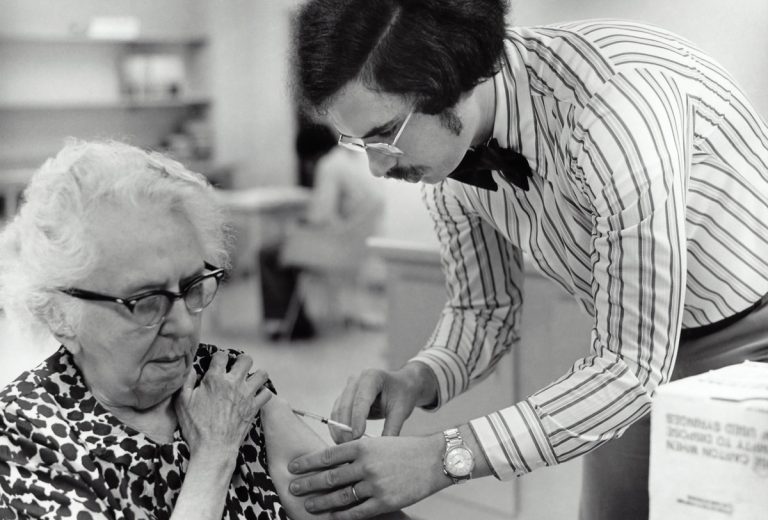The vaccination rate for black Americans is half that of white people

As the vaccine rollout begins in the US, the COVID-19 pandemic’s racial disparities seem to persist as communities of colour receive a smaller share of available vaccines. On 3 March 2021, 38 states publicly shared race and ethnicity data for vaccinated people. The jurisdictions define race and ethnicity categories in different ways, and with different levels of completeness.
In some states, as much as a third of vaccinations are missing race and ethnicity data. Public health experts have said that despite these ‘data limitations’, the patterns that are emerging across states are clear: “People of colour are getting vaccinated at rates below their representation of the general population,” explained Doctor Marcella Nunez-Smith, the chair of President Biden’s coronavirus equity task force, at a recent forum on the vaccine.
Although the reported race and ethnicity of vaccinated people is influenced by which groups are eligible to get a vaccine, the gaps aren’t solely because of the demographics of the first people in line. “We are not even rolling out to everyone in the country yet, and we are already seeing these disparities by race and ethnicity,” said Doctor Kirsten Bibbins-Domingo, a physician and epidemiology professor at the University of California, San Francisco, to The New York Times.
The state figures vary widely. In Texas, where people who identify as Hispanic make up 42 per cent of the population, only 20 per cent of the vaccinations had gone to that group. In Mississippi, where black people make up 38 per cent of the population, they received 22 per cent of the vaccinations.
According to a few public health experts, obstacles to vaccine access deserve much of the blame for vaccination disparities. Black and Hispanic Americans are less likely than their white counterparts to have internet access reliable enough to make online appointments, to have work schedules flexible enough to take any available opening, and to have access to dependable transportation to vaccine sites, among other factors. A lack of access to information about the vaccine through trusted providers can also lead to uncertainty and an unwillingness to get a shot.
Some states are now trying to address these challenges by bringing vaccines to hard-hit communities and partnering with local groups to share information in multiple languages and in culturally appropriate ways. But sadly, racial and ethnic health disparities are longstanding and deeply rooted in the US.
“When you think about these differences, you realise we have a lot of work to do as a nation,” said Doctor Sonja S. Hutchins, who worked at the Centers for Disease Control and Prevention for three decades. “This is not likely to be our last pandemic,” she added when speaking to The New York Times.
What does it take then to get credible information about the COVID-19 vaccine, and vaccines in general, to more people? As more social media giants work towards banning all types of anti-vaxxers content from their platforms, black and Hispanic communities continue to grapple with vaccine misinformation.
According to another article by The New York Times, “the misinformation varies, like claims that vaccines can alter DNA—which is not true—and that the vaccines don’t work, or that people of color are being used as guinea pigs.” A good part of this false information comes from friends, family and celebrities, bubbling up in communities that have been hit particularly hard by the pandemic and facing other hurdles to getting vaccinated.
In an ethnically diverse neighbourhood in Northern California, a community group started going door to door to understand the reasons behind the low vaccination rates for black and Hispanic Americans compared with non-Hispanic white people. What seems to be effective at increasing the coronavirus vaccination rates among citizens is to hold walk-in vaccination clinics where people can show up, ask questions they have and then potentially get a shot.
In just the last few weeks, there have been huge strides towards reaching people and getting those walk-in clinics open or taking vaccines to people, and addressing people’s concerns. Hopefully, this will help close the blatant vaccination gap in the US.





